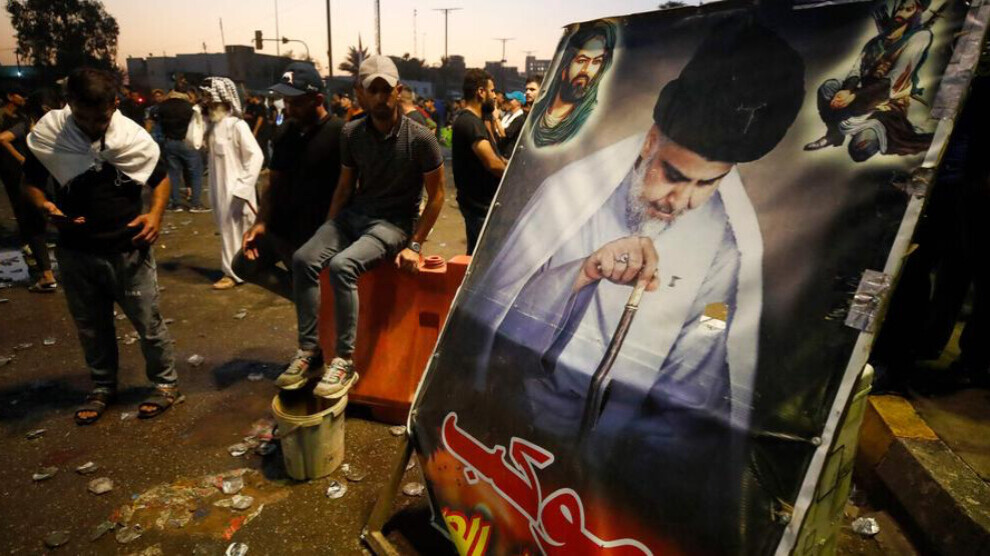At least 23 people die in storming of government palace in Baghdad
After the storming of the government palace in Baghdad by supporters of the Shiite cleric Moqtada al-Sadr, the death toll has increased to 23. Around 400 people were injured.
After the storming of the government palace in Baghdad by supporters of the Shiite cleric Moqtada al-Sadr, the death toll has increased to 23. Around 400 people were injured.

After the storm by supporters of the Shiite cleric Moqtada al-Sadr on the government and embassy district in Baghdad, the number of victims has increased to 23. Medical sources also said that 380 people were injured in clashes with security forces. Iraqi forces had fired shots and tear gas to drive the demonstrators out of the heavily secured Green Zone. Shortly before the storm, al-Sadr announced his retirement from politics, triggering the riots.
On Monday evening, at least seven grenades hit the area, according to security sources. Gunshots were then heard. A militia subordinate to Al-Sadr is said to have fired into the Green Zone from outside, it was said. The United Nations Support Mission in Iraq (UNAMI) spoke of an "extremely dangerous escalation" and called on the demonstrators to leave the government district immediately. "The survival of the state is at stake," the organization said. The protests have since spread to other parts of the country. Sadr supporters also stormed government buildings in the southern cities of Nasiriyah and Hilla, where they also blocked the roads.
The political crisis in Iraq has deepened after Sadr supporters invaded the Green Zone and occupied the parliament building a month ago. Ten months after the parliamentary elections, the parties are still unable to agree on a president or a head of government, while the country is groaning under an economic crisis, inflation and corruption. Although al-Sadr's Sairun movement emerged as the clear winner in the election, it failed to secure the important two-thirds majority required for the presidential election. This created a political stalemate.
Meanwhile, according to media reports, al-Sadr has announced a hunger strike until the violence in Iraq stops, and called for an end to the use of weapons, the state news agency INA and state television reported late Monday evening. There was no confirmation from Al-Sadr's office. The nationwide curfew imposed by the military continues.